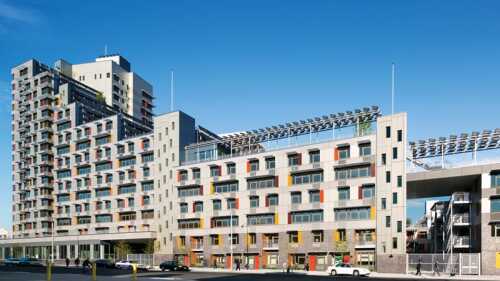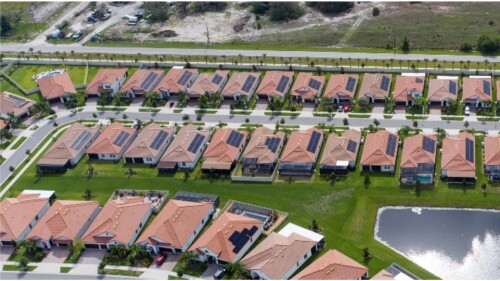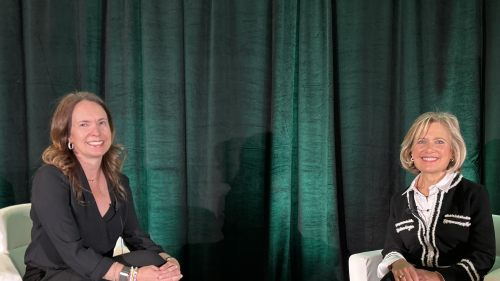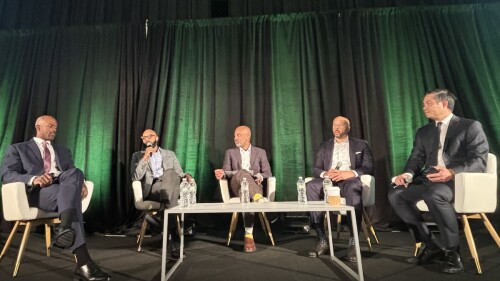Collaboration and swift, measurable actions are needed to prevent disastrous climate change, attendees heard during the first day of ULI Asia Pacific’s REImagine virtual conference.
The event opened with a presentation from climate scientist Professor Benjamin Horton of Nanyang Technological University, who was an author of the Intergovernmental Panel on Climate Change (IPCC) 5th Assessment Report and a review editor for the 6th Assessment Report, which was published earlier this year. The report said the world needs to be carbon neutral by 2050 to keep temperatures at today’s level by 2100 as the last five years were the hottest ever recorded.
Horton, a specialist in sea-level change, described some of the findings of the latest IPCC report regarding his field and the cities of the Asia Pacific region. Crucially, the findings of the report are that sea levels are rising and that rise is accelerating. Furthermore, while the “average case” sea-level rise will cause difficulties for cities all over Asia, in some scenarios the rise could be catastrophic.
“These are exceedingly worrying, and that’s why we need urgent action on climate change,” said Horton.
We hope you enjoyed EP#1 at #ULIREImagine! The science confirms that we should be alarmed and the #RealEstate industry needs to do more. It’s an ambitious journey getting to #netzero by 2050 but today’s speakers agree that collaboration, transparency, education is imperative. pic.twitter.com/jIIADi7qUp— ULI Asia Pacific (@ULIAsiaPacific) November 1, 2021
He pointed out that sea-level rises are not the same everywhere, saying “the sea level rise in Singapore will be different than it is in Manila or New York City.” Many Asian cities close to the equator, such as Singapore, face a rise of 20-30 percent above the world average.
Horton was dismissive of setting environmental targets far in the future. “We’re going to hear at COP26 [the United Nations Climate Change Conference being held in Glasgow, Scotland] some very nice words from political leaders about being carbon neutral by 2050 or 60,” he said. “Personally, I don’t give a damn about those statements because anyone could talk about what is going to happen 30 years into the future. What are they going to do to peak our carbon emissions by 2030?”
Collaboration between science, government, and business will be essential in meeting the challenges of climate change, Horton argued, saying all parties must be willing to share intelligence in order to succeed.
The importance of collaboration and definitive actions were themes taken up by real estate leaders who discussed Horton’s thoughts and the IPCC report in a follow-up panel. David Hutton, group head of development at Lendlease Asia, said the real estate industry needed to go beyond targets and to take “definitive action to work towards the mitigation of carbon and all the impacts that clearly has on the environment.”
Khong Shoong Chia, group chief corporate officer at Frasers Property, agreed, saying: “No single organization or entity is going to be able to get this done. We all need to work together because we don’t have all the knowledge today. We don’t have all the resources individually to deal with climate change.”
Chia, Hutton, and Elizabeth Kok, director and senior advisor at Swire Properties, said their firms all had net-zero commitments by 2040 or 2050, but the three companies also have nearer-term targets. For example, Frasers seeks to have 80 percent of its buildings green certified by 2024, while Lendlease plans to be a net zero for scope one and two emission by 2025 and absolute net zero by 2040.
Professor Hutton, who joined the panel, praised the companies for their actions but asked: “How many people in the audience are with companies which do not have these policies? They are the people we have to shift.”
Moderator Scott Dunn, chief strategy officer at AECOM, asked the panel to focus on scope three emissions–indirect emissions from a company’s value chain–and what they were doing to reduce these. Chia said Frasers was collaborating with and trying to educate their vendors and using responsible sourcing policies, while Hutton said Lendlease was creating alliance agreements to give suppliers more continuity of business and making change worthwhile. Hutton argued that the real estate industry needs to look differently at value, rather than always thinking the lowest cost is best.
Kok said that Swire’s sustainability initiatives formed a virtuous circle in that they allowed it to raise cheaper green finance and to attract both tenants and talent. However, she conceded that there was still a way to go in educating consumers in Swire’s shopping centers about the benefits of going green.
The panel agreed that the availability of green finance was important to helping the industry achieve its aims and that measurement of emissions and building performance were critical to improving the sustainability of real estate. “Without measuring, you can’t really understand where you need to improve and how far you’re improving,’ said Hutton.




